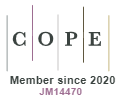Analysis of reflexes in premature infants undergoing functional positioning in a Neonatal Intensive Care
DOI:
https://doi.org/10.5585/conssaude.v14n1.4928Keywords:
Child development, Infant, premature, Physiotherapy (techniques).Abstract
Objective: To determine whether the extremely preterm infants, who were subjected to functional positioning, can acquire integration of primitive reflexes when compared to preterm. Methods: This is a report of eight cases consisting of extremely preterm and preterm infants. All babies in the study were subjected to functional positioning in the Neonatal Intensive Care Unit, organized in the prone, supine and lateral positions with the use of cushions to ensure restraint and offer a sense of security, in a frequency of three times a day, during hospital length. The reflexes of the infants were evaluated at the 30th and 60th days of birth in the period from June to October 2012 through the Test of Infant Motor Performance (TIMP). Results: There were differences in scores of the TIMP after the 30th day of life among the groups; however, there was no difference in scores of the second evaluation performed at 60th day. Conclusion: Babies submitted to the early functional positioning managed to acquire proper integration of primitive reflexes after 60 days of life.Downloads
Downloads
Published
2015-04-30
How to Cite
1.
Calazans PPF, Amaral SP, Pinheiro HA, Gardenghi G. Analysis of reflexes in premature infants undergoing functional positioning in a Neonatal Intensive Care. Cons. Saúde [Internet]. 2015 Apr. 30 [cited 2025 Jun. 20];14(1):147-52. Available from: https://periodicos.uninove.br/saude/article/view/4928
Issue
Section
Cases studies
License
Copyright (c) 2015 ConScientiae Saúde

This work is licensed under a Creative Commons Attribution-NonCommercial-ShareAlike 4.0 International License.
Views
- Abstract 680
- PDF (Português (Brasil)) 683







